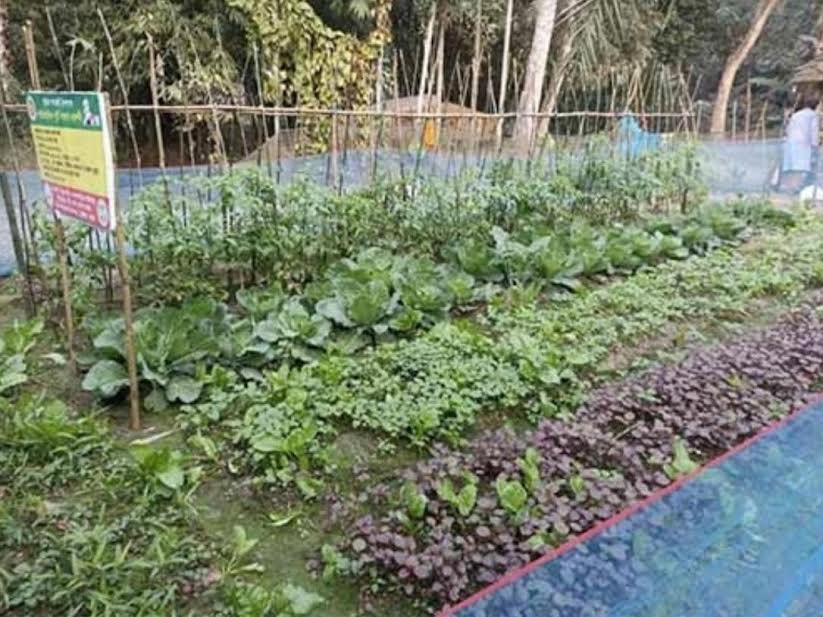News Flash

By S M Zahid Hossain
KHULNA, Nov 14, 2025 (BSS) - Family nutrition gardens are opening new opportunities for farmers in Dumuria upazila of Khulna by ensuring proper use of homestead land and strengthening safe food security at the household level.
These gardens are not only meeting daily vegetable needs but also enabling families to earn additional income by selling surplus produce, giving a fresh boost to the rural economy.
According to the Department of Agricultural Extension (DAE), more than 500 family nutrition gardens have been established in two phases across nine upazilas of Khulna under the project titled "Establishment of Family Nutrition Gardens on Unused Fallow Land and Homestead Areas."
Beneficiary households have already begun harvesting vegetables from gardens designed following the Kalikapur model.
DAE sources said selected families receive two days of training-either both husband and wife or one of them-to improve their garden management skills. After the training, each garden is set up on one and a half decimals of homestead land with five north-south-oriented beds and trellises on both sides.
Beds are cultivated with red amaranth, beetroot, carrot, spinach, water spinach, Malabar spinach, stem amaranth, coriander, green chili, radish and other seasonal vegetables, while trellises support gourd, pumpkin, hyacinth bean, yardlong bean and ridge gourd. Fruit saplings such as Thai guava, wood apple, jujube and chui jhal have been planted at the garden edges.
The design ensures year-round vegetable and fruit availability. The government provides seeds, fertilizers and saplings free of cost, while farmers maintain the gardens. DAE has planned to establish 100 nutrition gardens in every union of the district in phases.
Speaking to BSS, farmer Nabadwip Mondal of Baratia village under Dumuria upazila said he has harvested monsoon-season vegetables with satisfactory yields. His garden meets his family's vegetable needs for 15-20 days at a time, and he sells the surplus. His yard is now filled with bottle gourd, spinach, snake gourd, bitter gourd, pumpkin, cucumber, okra, beans, red amaranth, tomato, chili, eggplant, papaya and even medicinal plants like pennywort.
"This type of agro-garden can be a model for women in coastal areas," he added.
Another farmer Fahrad Hossain of the same area said he no longer needs to buy vegetables from the market after establishing his garden, while Hanif Mollah of Kharnia said although he cultivated vegetables earlier, he had never grown them in such a planned manner. His garden now meets his family's needs and he expects to earn extra income.
Farmers' groups are also holding monthly meetings and training sessions where women exchange farming knowledge, share seeds and operate collective savings schemes. They receive training on nutrition, food safety, environmental conservation and organic farming-turning the initiative into a platform for women's empowerment and leadership.
Dumuria Upazila Sub-Assistant Agriculture Officer Nurun Nahar said the nutrition gardens are helping families meet year-round vegetable demand while generating income from surplus produce.
Dumuria Upazila Agriculture Officer Agriculturist Md Insad Ibn Amin said the initiative aims to ensure that "not even an inch of land remains uncultivated," as fallow homestead areas are gradually brought under production.
Khulna DAE Deputy Director Md Nazrul Islam said the project ensures proper use of fallow land and can meet half of the annual vegetable requirement of a four-member family. "Women have been included in the training so they can maintain the gardens alongside household responsibilities," he added.
Md Rafiqul Islam, Additional Director of Khulna Agriculture Zone, said many farmers are benefiting financially after meeting household needs. DAE is providing all necessary agro-inputs, including training, seeds and saplings.